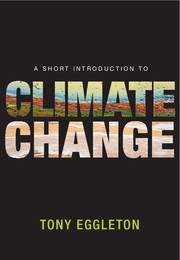 The Prime Minister’s science advisor, Sir Peter Gluckman, today released a new report looking at the probable impacts of climate change in New Zealand over the next 40 years. The report, New Zealand’s Changing Climate and Oceans: The impact of human activity
The Prime Minister’s science advisor, Sir Peter Gluckman, today released a new report looking at the probable impacts of climate change in New Zealand over the next 40 years. The report, New Zealand’s Changing Climate and Oceans: The impact of human activity
and implications for the future (pdf) is:
… intended to update the public on current scientific understandings of climate change and ocean acidification. In particular, it focuses on how these changes are likely to affect New Zealand’s climate and industries at a regional level over coming years.
The timing of the report — which appears at first glance to offer a reasonable overview of our current understanding of likely local climate changes — seems a trifle odd. In a matter of months the IPCC will release the first part of its Fifth Report, covering the underlying science, and while we’ll have to wait until March next year for the Working Group 2 report on regional impacts, Gluckman and his team would have had a firmer foundation for their report with only a modest delay.
I’ll be reading the report carefully over the next few days, and will have more to say in due course. I’m particularly interested in exploring how Gluckman approaches the risks associated with local climate changes, and his take on how the wider international context will impact New Zealand.
See also: Peter Griffin, NZ Herald.

 My column at
My column at  Tony Eggleton’s
Tony Eggleton’s